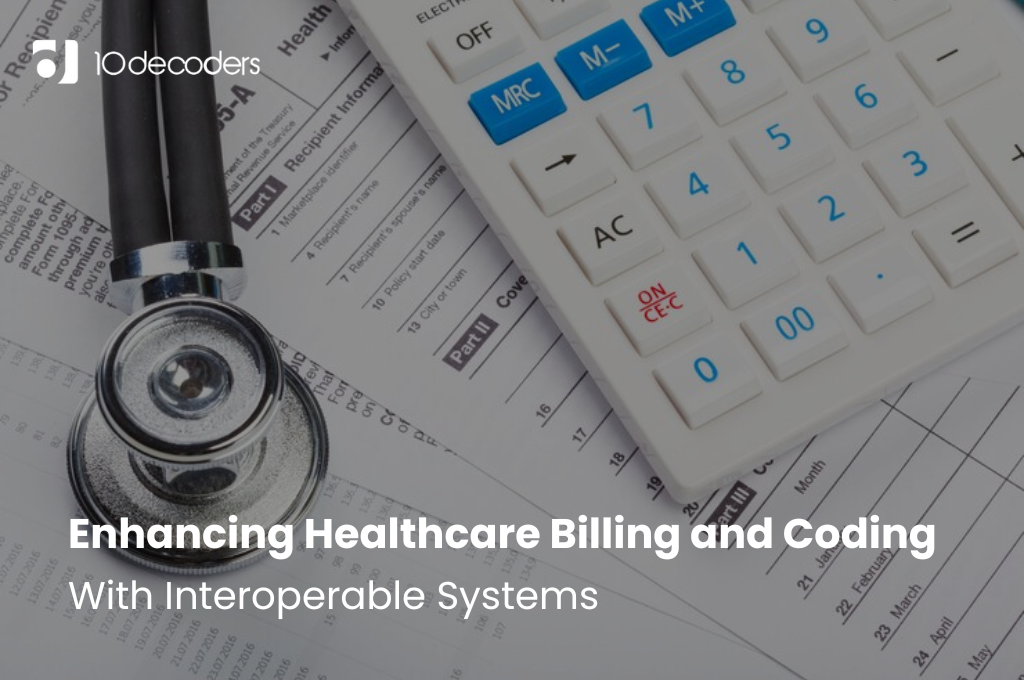Enhancing Healthcare Billing and Coding with Interoperable Systems
The complex tapestry of healthcare relies on a multitude of interwoven threads, each playing a crucial role in ensuring smooth operation and optimal patient care. Among these threads, healthcare billing and coding stand out as the intricate financial arteries pumping lifeblood into the system. Accurate and efficient billing and coding practices not only determine timely reimbursement for healthcare providers but also influence crucial aspects like data analysis, resource allocation, and ultimately, patient outcomes.
In an era of rapid technological advancements, healthcare is witnessing a paradigm shift towards interoperable systems. This refers to the seamless exchange of data between disparate healthcare information systems, breaking down traditional silos and fostering a cohesive flow of information. The impact of interoperability on healthcare billing and coding is nothing short of transformative, ushering in a new wave of efficiency, accuracy, and transparency.
Streamlining the Billing and Coding Workflow
Prior to interoperability, healthcare billing and coding processes were often plagued by inefficiencies and inaccuracies. Paper-based systems, manual data entry, and a lack of communication between systems resulted in errors, delays, and denied claims. Interoperability has revolutionised this landscape by automating tasks, minimising manual intervention, and facilitating real-time data exchange.
Here’s how interoperability streamlines the billing and coding workflow
- Automated charge capture: Interoperable systems can automatically capture charges for services rendered, eliminating the need for manual data entry and reducing the risk of errors.
- Pre-coding and real-time coding suggestions: Advanced systems can suggest appropriate codes based on patient diagnoses and procedures, significantly speeding up the coding process and improving accuracy.
- Instant eligibility verification: Real-time eligibility verification ensures accurate determination of patient coverage and reduces denied claims due to incorrect billing information.
- Claims scrubbing and submission: Interoperable systems can automatically scrub claims for errors before submission, further reducing the risk of denials and delays.
Enhancing Accuracy and Compliance
Inaccurate billing and coding not only impact reimbursements but also raise compliance concerns. Interoperability plays a crucial role in mitigating these risks
- Standardised coding practices: By adhering to established coding standards and terminology, interoperable systems ensure consistency and accuracy in coding, minimising errors and potential audits.
- Real-time error detection and correction: Automated systems can identify coding errors in real-time, allowing for immediate correction and preventing claim denials.
- Improved documentation and audit trails: Interoperable systems provide a complete audit trail of all billing and coding activities, enhancing transparency and facilitating compliance with regulations.
Beyond Efficiency: Transparency and Patient Engagement
The benefits of interoperable systems extend beyond internal efficiencies. Patients also reap the rewards of a more transparent and connected healthcare ecosystem
- Improved billing transparency: Patients can access their billing information in real-time and gain a clearer understanding of charges and insurance coverage.
- Reduced administrative burden: Interoperable systems can automate tasks like appointment scheduling and insurance verification, freeing up patients’ time and reducing administrative hassle.
- Enhanced patient engagement: Access to their own health data empowers patients to actively participate in their care decisions and collaborate with their providers.
Challenges and the Road Ahead
While the promise of interoperable systems is undeniable, challenges remain. Concerns around data privacy and security, standardisation of coding practices, and the integration of legacy systems require careful consideration and collaborative efforts.
To fully unlock the potential of interoperable systems for healthcare billing and coding, stakeholders must come together to
- Develop and implement robust data security and privacy standards.
- Promote the adoption of standardised coding practices and terminology.
- Provide adequate funding and support for healthcare providers to invest in interoperable systems.
- Foster collaboration between technology vendors, healthcare providers, and payers.
Conclusion
The integration of interoperable systems represents a giant leap forward for healthcare billing and coding. By streamlining workflows, enhancing accuracy, and promoting transparency, interoperability paves the way for a more efficient, accurate, and patient-centric healthcare ecosystem. As we navigate the challenges and forge ahead, the promise of interoperable systems lies not just in improved billing and coding practices, but in a fundamentally transformed healthcare landscape where data flows freely, empowering patients, providers, and payers to work together towards a healthier future.



